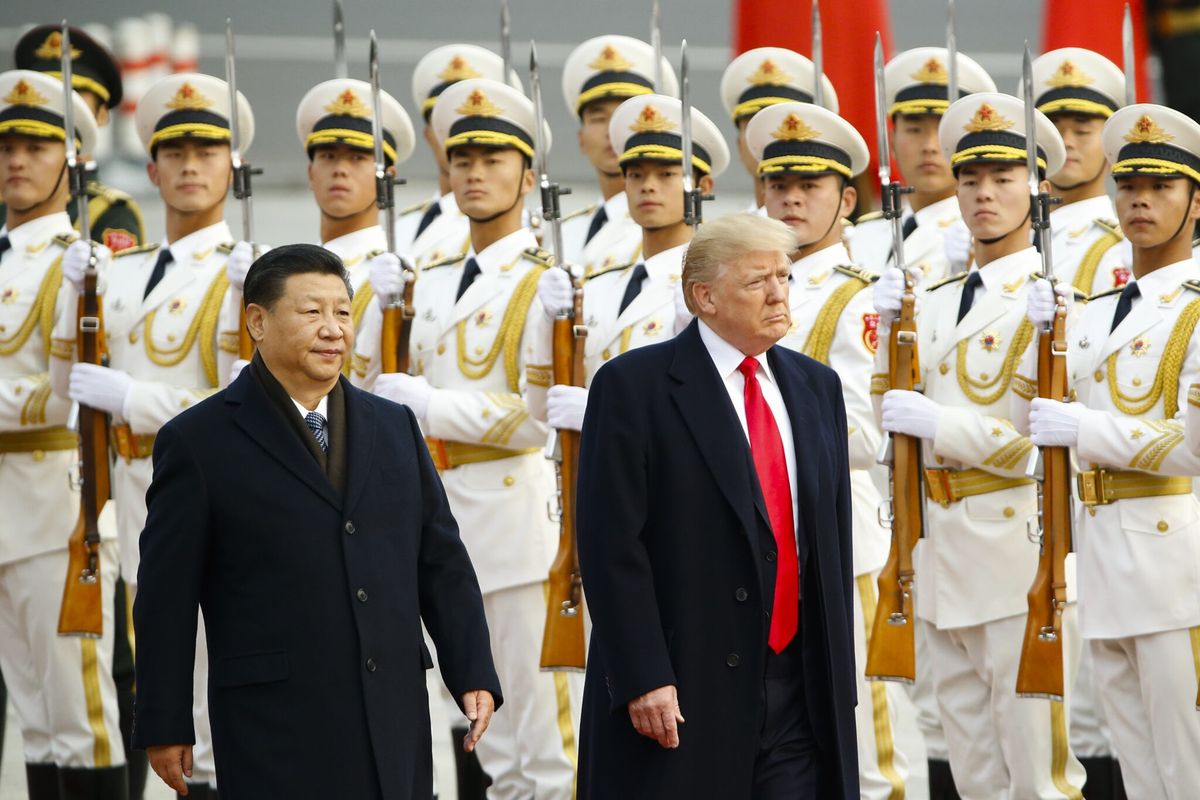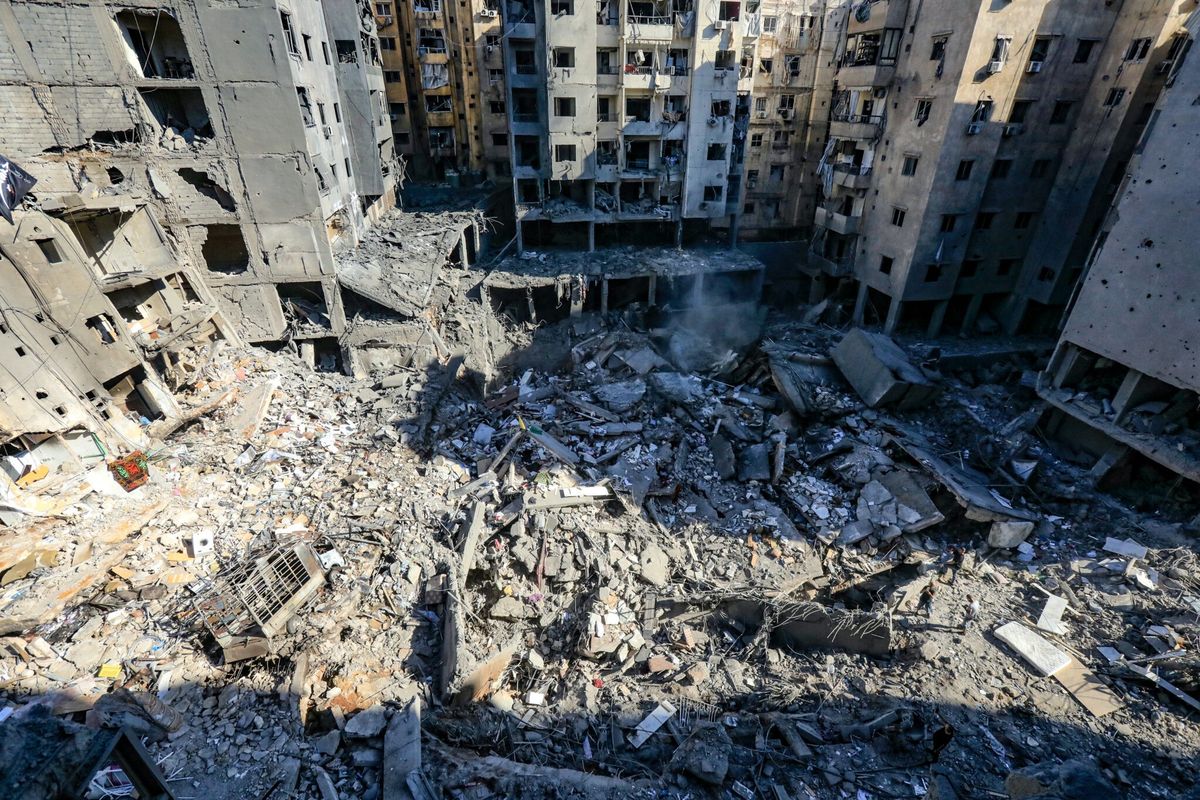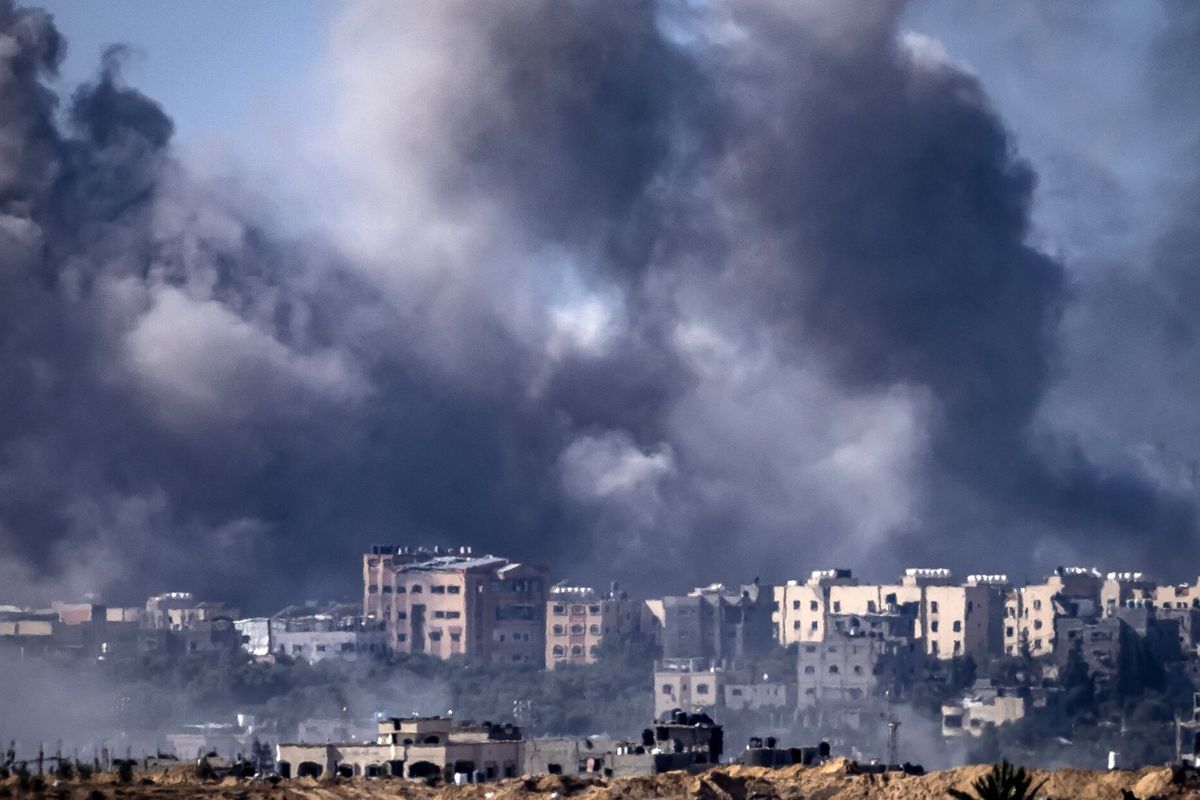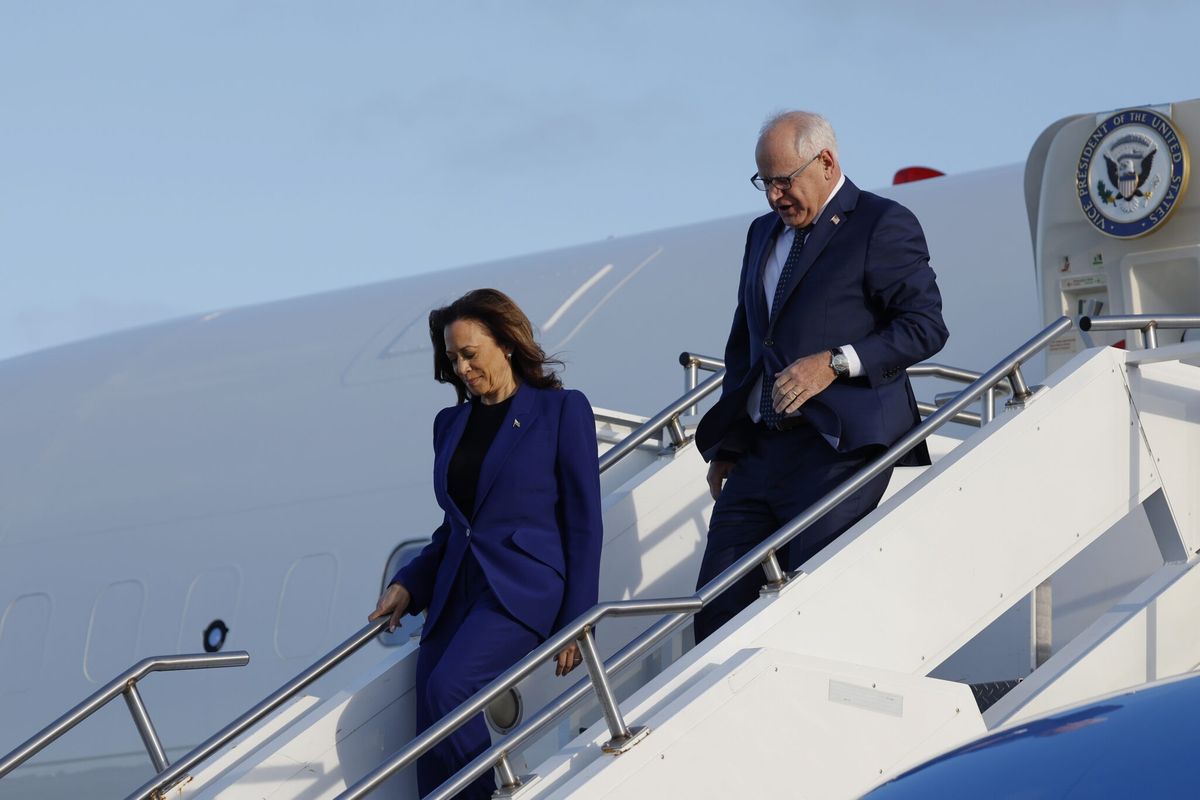SUBSCRIBER+ EXCLUSIVE REPORTING — The Israeli drone strike that killed three adult sons (who Israel says were Hamas operatives) and four grandchildren of Hamas’s Qatar-based political leader Ismail Haniyeh Wednesday provided the Israeli military a small victory in its pursuit of Hamas leaders, but it may also have set back prospects for a ceasefire with Hamas militants in Gaza, according to Israelis and Palestinians who have spoken publicly on the assassinations.
The attack on a car in which Haniyeh’s sons were riding was quickly claimed by Israel. Israeli Defense Forces (IDF) spokesman Adm. Daniel Hagari said the three were “military operatives of the terrorist organization Hamas on their way to carry out terrorist activities in the central area of the Gaza Strip.” The IDF identified the men as Amir Haniyeh, a Hamas squad commander; and Muhammad and Hazem Haniyeh, both Hamas “operatives,” and confirmed they were Haniyeh’s children.
Haniyeh’s response to the killing of three of his 13 children was immediate–and linked directly to the ceasefire talks: "If they think that targeting my children at the peak of these talks before the movement’s [Hamas’s] response is submitted will cause Hamas to change its positions, they are delusional,” Haniyeh said in an interview with Al Jazeera. He said his family had been targeted while visiting relatives at a refugee camp in northern Gaza for the Eid holiday marking the end of Ramadan.
“Through the blood of the martyrs and the pain of the injured, we create hope, we create the future, we create independence and freedom for our people and our nation,” Haniyeh said.
A small “win” for Israel?
The attack followed one of the worst moments of the six-month-long war for Israel in terms of its image on the global stage: the April 1 drone strike that killed seven people working in Gaza for the aid group World Central Kitchen. That strike drew intense global condemnation of Israel, including a blistering rebuke from the Biden Administration. The IDF disciplined five officers for approving the attack.
Some analysts suggested the strike against Haniyeh’s family members would serve as a reminder that the Hamas threat persists in Gaza, and–for the Israeli public–a reminder that the IDF continues to pursue individuals responsible for the terror of October 7.
Israel's right-wing treasury minister, Bezalel Smotrich, who leads the Religious Zionism party, congratulated the IDF on the assassinations. “None of the leaders of Hamas who led a massacre and rape and still hold our hostages is immune from our long hand,” Smotrich said in a post on X. “With God's help we will reach everyone.”
The killing of the Haniyeh sons appears to be part of Israel’s oft-stated goal to kill anyone with a connection to the October 7 attack in southern Israel that left nearly 1,200 people dead and saw more than 240 abducted to Gaza. Since the early days of the war, Israel has kept a list of Hamas leaders it wants killed, and the IDF even printed their faces on a deck of cards distributed to Israeli soldiers. Haniyeh is the ace of diamonds in that deck, but the IDF has made no allegations that his sons played a role in the October 7 massacre.
The head of the Israeli intelligence service Shin Bet, Ronen Bar, warned in December that Israel would hunt down Hamas leaders around the world.
“In every location, in Gaza, in the West Bank, in Lebanon, in Turkey, in Qatar, everyone,” Bar said in a recording leaked to the official Israeli broadcaster Kan. “It will take a few years, but we will be there in order to do it.”
Recent polling has found plunging support for Netanyahu and his conduct of the war, and rising concerns that neither of the government’s stated war aims–the destruction of Hamas and the release of the hostages–was being met.
In an interesting footnote to Wednesday’s strike, Israeli press reports suggested that the hit had been ordered by an army colonel, a relatively low-ranking officer, and that neither the IDF command nor the government was informed before a drone was dispatched to blow up the men’s car.
Israel’s Walla news site reported that the IDF and the Shin Bet, which jointly carried out the attack, had treated it as a “tactical incident” against the three as Hamas militants, not because they were the sons of Ismail Haniyeh.
A step back for negotiations?
The strike also came amid high-level talks aimed at arranging a ceasefire in exchange for the release of hostages; the Central Intelligence Agency director William Burns met in Cairo this week with Egyptian president Abdel Fattah El-Sisi in the latest effort to break an Israel-Hamas standoff that has persisted for months, and there were concerns that taking out Haniyeh’s children would set back those efforts.
Hamas has insisted that any agreement must secure an end to the Israeli military offensive, a withdrawal of Israeli forces from Gaza, and the freedom of hundreds of Palestinian prisoners in Israel. Israel wants the release of the hostages and continues to say it will not end the war until it annihilates Hamas.
Whether the two sides were in fact near any kind of agreement, there were suggestions in both Gaza and Israel that the Haniyeh killings would make a resolution more difficult. Ismail Haniyeh has been a key player in the talks from his perch in Qatar–even if he hasn’t always been present at the negotiating table.
A Hamas political official, Basem Naim, told Al Jazeera after the Haniyeh sons were killed that Israeli Prime Minister Benjamin Netanyahu has been “doing the maximum to block or to undermine any chance to reach a ceasefire agreement.”
Israeli opposition politician Yair Golan, a former deputy chief of staff of the IDF, criticized the timing of the assassinations. “However justified and appropriate they may be,” he said in a post on X, the killings “point to a lack of political wisdom in regards to the timing chosen. Carrying out such dramatic actions, on the eve of a possible deal for the release of the abductees, constitutes another serious layer in their lawlessness.”
But Haniyeh may not be the key decision-maker in the ceasefire talks, said Michael Horowitz, head of intelligence at Le Beck International, a Middle East security and consulting firm.
Yahya Sinwar, the Hamas military leader still thought to be directing attacks against Israel from southern Gaza, may hold the keys to any peace, he said.
“Sinwar is the only one who has control over the situation in Gaza on Hamas's side, and who controls the hostages. At the end of the day, Hamas will only agree to a deal if it is in its interest, and the killing of Haniyeh's sons and grandchildren won't change the group's calculus,” Horowitz wrote in an email to The Cipher Brief.
A more immediate obstacle to a ceasefire agreement emerged Wednesday when Hamas said it could not locate all 40 of the hostages it had offered to release as part of a proposed accord, CNN reported. That raised fresh suspicions that many hostages have died, or that not all had been held by Hamas–or both.
In broad terms, the attack on Haniyeh’s family will only cement Hamas’ position, said Matt Levitt, a senior fellow at the Washington Institute for Near East Policy. “Hamas has outstanding (and unrealistic) demands, and those are what are holding up progress toward a hostage/prisoner swap,” Levitt told The Cipher Brief.
The killing of the Haniyeh sons may have another consequence: a boost for even the least popular Hamas leaders on the rubble-strewn streets of Gaza. Some of those leaders–particulary the ones living in relative opulence, as Haniyeh does in Qatar–have been harshly criticized by Palestinians in Gaza.
A Hamas source in Gaza called the assassination "a foolish move that strengthens Hamas publicly rather than weakening it,” Israel’s centrist newspaper Haaretz reported. With many Palestinians in Gaza criticizing Haniyeh and other Hamas leaders living luxuriously abroad, the source said, “here comes the assassination and proves that the chief's sons are still in Gaza and that Haniyeh himself is paying a personal price.”
Read more expert-driven national security insights, perspective and analysis in The Cipher Brief














